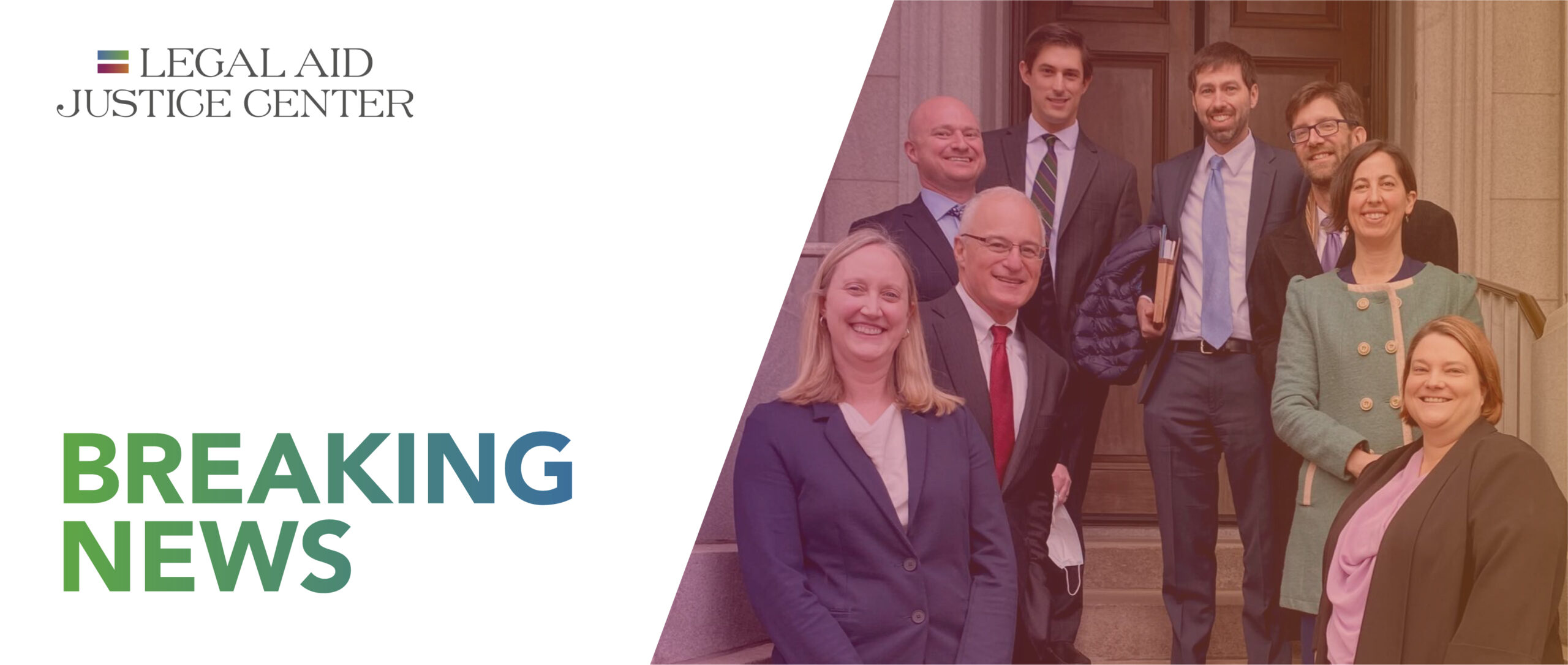
Today, an en banc panel of the United States Court of Appeals for the Fourth Circuit issued a decision holding that clients of LAJC and its pro bono partners qualify as prevailing parties who are eligible to recover attorney’s fees and costs for our lawsuit that helped to end the practice of suspending driver’s licenses for court debt. This decision is important because it supports the development of civil rights law and discourages states from continuing to violate constitutional rights.
Our case, Stinnie v. Holcomb, was a lawsuit challenging Virginia’s court debt driver’s license suspension law on the grounds that it violated basic constitutional guarantees of due process and equal protection. In late December 2018, the court entered a preliminary injunction to stop the government from enforcing the law against our clients. In April 2019, the Governor stepped up and proposed a budget amendment to halt the practice in the Commonwealth, but it was only a temporary reprieve. At the government’s request, and over our objections, the court elected to postpone a trial set for August 2019 to give the legislature a chance to repeal the law in 2020. It did.
However, the courts denied our clients and us the right to receive compensation for the years of effort put in by the LAJC legal team and our pro bono partners, because the case was ultimately mooted after the legislature repealed the challenged law. The Fourth Circuit Court of Appeals saw the danger inherent in denying legal fees in such situations:
“Our [previous rule about fees], however, may undermine that policy by allowing government defendants to game the system. Faced with a suit challenging a potentially or even very probably unlawful practice, a defendant may freely litigate the case through the preliminary injunction phase, hoping for the best or, perhaps, to outlast an indigent plaintiff. And when the court confirms the likely merit of the plaintiff’s claim, the government will have ample time to cease the challenged conduct, moot the case, and avoid paying fees. That leaves the plaintiff, who likely devoted considerable resources to obtaining the preliminary injunction, holding the bag. The predictable outcome of this gamesmanship is fewer attorneys willing to represent civil rights plaintiffs in even clearly meritorious actions – particularly those whose urgent situations call for interim relief.” (emphasis added)
Read the full decision here
This is a major win for civil rights for Virginians and all people in the Fourth Circuit and brings the Fourth Circuit in line with other circuit courts across the country.
We want to thank our named plaintiffs in this case, Damian Stinnie, Melissa Adams, Adrainne Johnson, Williest Bandy, and Brianna Morgan. We also thank our pro bono partners, including Tennille Checkovich (who delivered a commanding oral argument that helped lead to this most recent win), Jonathan Blank, Leslie Kendrick, John Woolard, and Michael Stark, among others, for all they have done in this most recent phase and throughout this lawsuit. It has changed Virginia for the better in so many ways.
